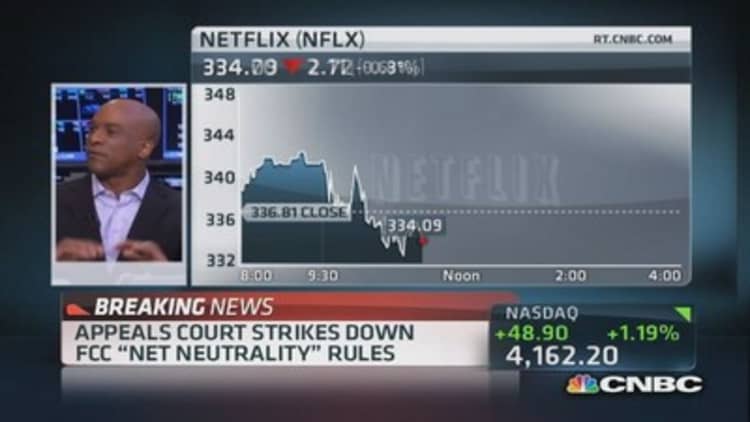
The Federal Communications Commission may appeal the ruling by a U.S. appeals court on Tuesday that struck down the agency's so-called net neutrality rules, according to FCC Chairman Tom Wheeler.
"I am committed to maintaining our networks as engines for economic growth, test beds for innovative services and products, and channels for all forms of speech protected by the First Amendment," Wheeler said in a statement.
(Read more: FCC says AT&T sponsored data plans bear watching)
"We will consider all available options, including those for appeal, to ensure that these networks on which the Internet depends continue to provide a free and open platform for innovation and expression, and operate in the interest of all Americans."
The FCC's 2011 open Internet rules require Internet providers to treat all Web traffic equally and give consumers equal access to all lawful content but were challenged by Verizon Communications as excessive.
The FCC did not have the legal authority to enact the regulations, the U.S. Court of Appeals for the District of Columbia Circuit said in its ruling.
``Even though the commission has general authority to regulate in this arena, it may not impose requirements that contravene express statutory mandates,'' Judge David Tatel said.
Although the three judge panel were unanimous about the outcome, one wrote separately that he would have gone even further in restricting the FCC's authority.
The FCC could appeal the ruling to the full appeals court or to the U.S. Supreme Court, or it could attempt to rewrite the regulations to satisfy the appeals court.
During the oral argument in September, Verizon's lawyer said the regulations violated the company's right to free speech and stripped control of what its networks transmit and how.
The eventual outcome of the dispute may determine whether Internet providers can restrict some content by, for instance, blocking or slowing down access to particular sites or charging websites to deliver their content faster.
(Read more: FCCchairman says he personally opposes in-flight calls)
Verizon had no immediate comment.
—By Reuters

